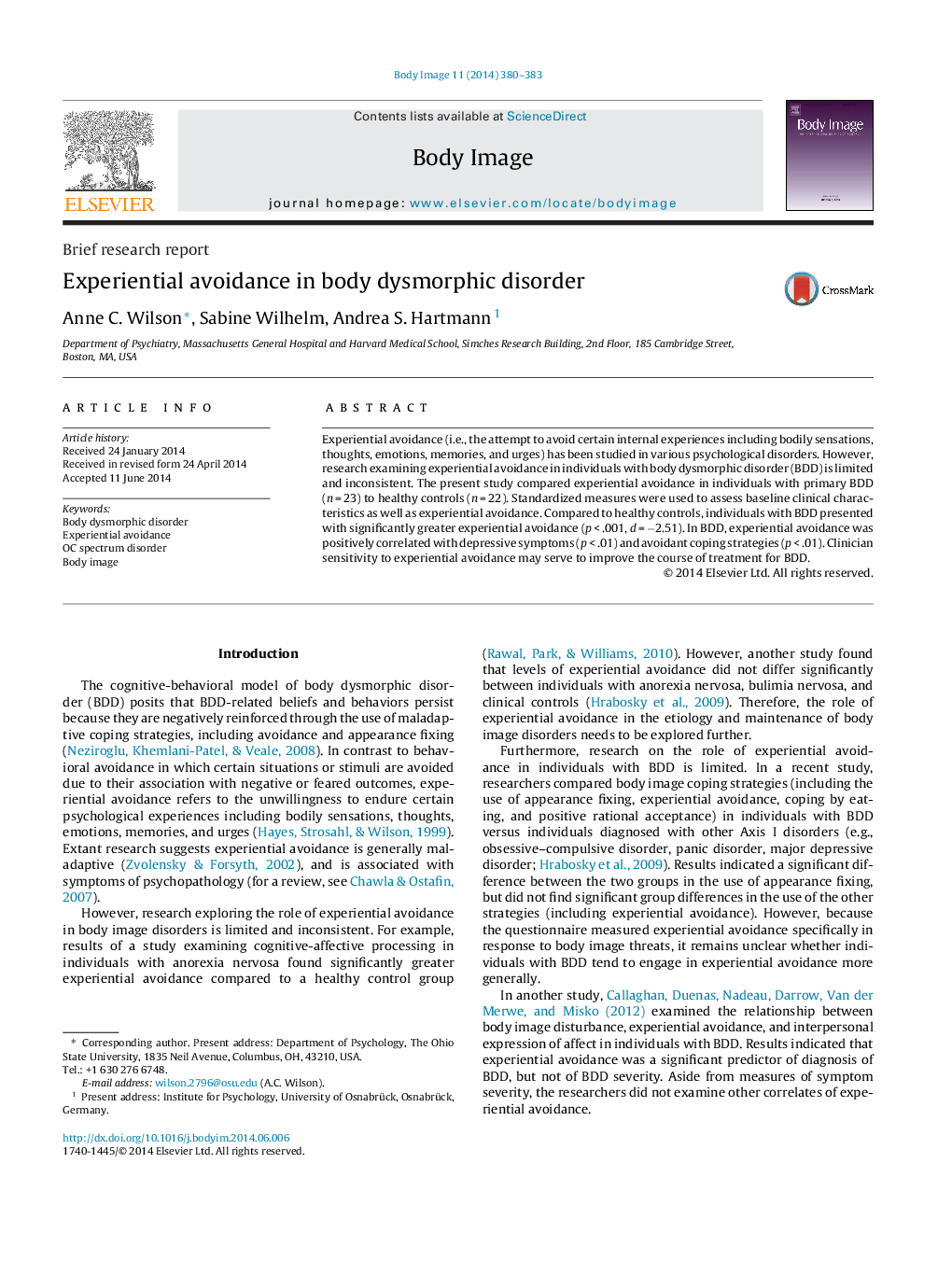| Article ID | Journal | Published Year | Pages | File Type |
|---|---|---|---|---|
| 902840 | Body Image | 2014 | 4 Pages |
•Participants with BDD demonstrate greater experiential avoidance compared to control participants.•The degree of experiential avoidance in BDD is related to depressive symptoms and the use of avoidant coping strategies.•Research on experiential avoidance in BDD may inform psychosocial treatment development.
Experiential avoidance (i.e., the attempt to avoid certain internal experiences including bodily sensations, thoughts, emotions, memories, and urges) has been studied in various psychological disorders. However, research examining experiential avoidance in individuals with body dysmorphic disorder (BDD) is limited and inconsistent. The present study compared experiential avoidance in individuals with primary BDD (n = 23) to healthy controls (n = 22). Standardized measures were used to assess baseline clinical characteristics as well as experiential avoidance. Compared to healthy controls, individuals with BDD presented with significantly greater experiential avoidance (p < .001, d = −2.51). In BDD, experiential avoidance was positively correlated with depressive symptoms (p < .01) and avoidant coping strategies (p < .01). Clinician sensitivity to experiential avoidance may serve to improve the course of treatment for BDD.
